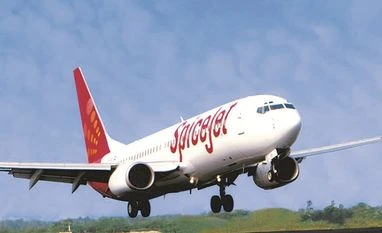Here to attend the World Economic Forum (WEF) annual summit, Singh also welcomed the government's decision to privatise Air India but was non-committal on whether SpiceJet would be interested in participating in the national carrier's disinvestment process.
The no-frills airline, which has turned around its fortunes under the stewardship of Singh, already flies to a few international destinations, including Dubai and Singapore.
More From This Section
On whether India can have a large airline of international scale and whether SpiceJet can be the one, Singh said, "There is no question about that and I think we owe it to our country that we carry our own people and we become a large international carrier."
"Every airline in India should look at those opportunities to fly long haul," Singh, who is the chairman and managing director of SpiceJet, told PTI in an interview.
On how long it is likely to take to start long-haul flights, the SpiceJet chief said it will not take much time and "in a year or two most airlines will be looking at flying long haul".
Singh also emphasised that India needs to be connected more directly within as well as outside the country.
Only a handful of airlines, including Singapore-based Scoot and Malaysia's AirAsia X, have attempted flying low-cost long-haul flights and some of them have been doing good.
Currently, SpiceJet operates an average of 402 flights daily to 51 destinations, including seven international ones. It has a fleet of 38 Boeing 737NG and 22 Bombardier Q-400s.
"India is the fastest growing aviation market in the world. A growth rate of 20 per cent is unprecedented and still only 3 per cent Indians are flying so clearly this sector can grow for many many years to come provided the infrastructure keeps pace," Singh said.
There is also need for more investment in infrastructure, he added.
The budget carrier had a market share of 12.7 per cent in December 2017, as per latest data available with aviation regulator DGCA.
As far as Air India is concerned, Singh said the government has taken the appropriate decision to privatise it because it is a national asset that needs to be put to better use.
"Our ability to take more Indians overseas directly and create our own hubs instead of borrowing hubs from the Middle East and Far East Asia will get a boost with Air India privatisation," he said.
However, he was non-committal on buying a stake in the national carrier.
"Abhi dekhte hain (Let's see)," he said on whether he would look at acquisition of Air India.
In response to a query on whether the airline would look at acquisitions, Singh said that would depend on the opportunities even as he added that there is a lot of potential for organic growth as well.
Ruling out plans for roping in any foreign investor, Singh said there was no such move at the moment.
)